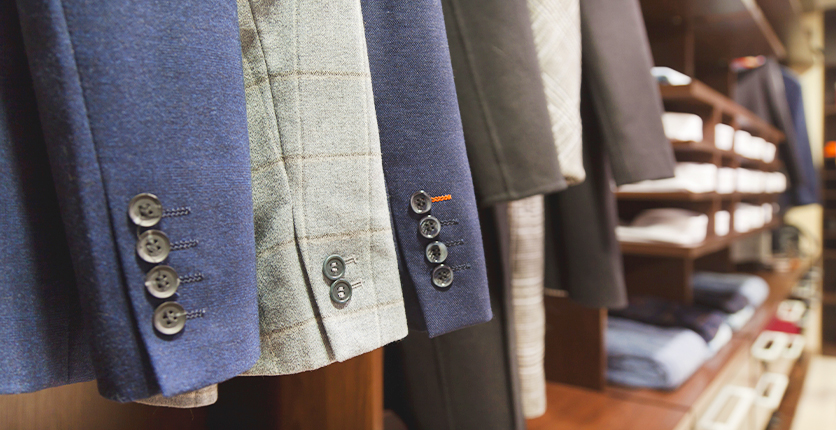It’s easy to go a little overboard during a sale. When you have an array of heavily discounted items to choose from, you can’t help but want to buy everything in sight or load up on the trendiest items of the moment. But shopping mindlessly has its downsides – it may leave you with bags full of products you don’t need and will probably never use (not to mention, buyer’s remorse!) and burn a huge hole in your pocket.
With the 11.11 and Black Friday sales taking place this month, just about every retail and online store will be hawking hot deals many of us will find hard to resist. So, it pays to be a smart shopper, and that means planning ahead, preparing a budget, knowing how to get maximum bang for your buck, and being on the lookout for the best deals. Here are six sale shopping tips from Debby Kwong, founder of Sortorial, a personal shopping and home organisation business, and Jeann Ng, a personal shopper and stylist and the founder of StylebyJeann.
1. Decide what you need to buy

Whether you’re shopping for clothes, footwear, accessories, gadgets or household items, it pays to be aware of what you already have and then make a list of what you want to buy.
If you’re updating your wardrobe, for instance, Jeann suggests replacing items that are worn out or that you no longer want or need, and stocking up on basics and essentials, such as neutral-coloured tees, jeans, socks and the like.
There may also be things you’ll come across during a sale that you really love. Before committing to buying them, Jeann says to think about how they’ll work with other items of clothing and whether or not they will add variety to your wardrobe. If you can pair them with several other pieces and you know you can get a few different looks out of them, then they’re probably worth buying.
Decluttering your home or wardrobe a couple of times a year will also make it easier to take stock of what you have, Debby adds. As you go about this process, you may come across items in the back of your closet that you forgot you owned.
2. Set a shopping budget

To avoid maxing out your credit card or getting into debt, it helps to set a shopping budget before you actually hit the stores. Jeann says that creating a budget gives you a clearer picture of where to invest your dollars so that you can get the most value out of your purchases.
“I recommend splitting your budget between ‘wants’ and ‘needs’,” she says.
How do you distinguish between the two? A need is something that’s necessary and essential for you to live and function, whereas a want is something that you wish to have because you believe it’ll improve your quality of life or give you comfort or joy.
3. Invest in timeless styles and quality items that will last

A sale is a good time to think about investment buys, like home appliances, a good-quality suit, beautifully crafted dress shoes, a gadget, or a designer watch. Depending on your budget, you may want to purchase more than one of the same item, because, as Jeann points out, retailers often use the sale period to get rid of outdated stock, offering massive discounts if you buy more.
So, for example, you can’t go wrong buying two or three business suits in different colours – for starters, you’ll likely wear them multiple times, plus, if they’re well-made and have a classic style, you won’t have to get rid of them or replace them within a couple of years.
“If the item in question is a piece of clothing, cost-per-wear is something you should definitely keep in mind,” Debby adds. “Something that’s made or designed well is a good investment. Bonus points if you can style it three different ways.”
Should you spend money on trendy items that will look outdated within the year, just because they’re super-cheap?
It depends, says Jeann. If you know that you’ll wear them a lot and that they can be paired with different items that you already own, go ahead, but if you only wear 20% of your wardrobe 80% of the time then such items probably aren’t worth it.
4. Get a heads-up on promotions and sales

“I like to stay up to date with what my favourite brands and stores are doing – that way, I’ll be among the first to know when they put their products on sale or offer any special shopping promotions,” says Jeann.
“I also keep a list of items that I categorise as either “must have” or “good to have”, so when the sale starts, I can make a quick decision about what to spend my money on.”
Being among the first to shop a sale also means you get first pick of the best stock.
If you’re an impulsive shopper, however, you’re better off not signing up to stores’ mailing lists or following brands on social media. Debby says that this may lead to unnecessary consumption. You may also experience FOMO if you don’t check out an advertised sale. If you really needed something, you would keep an eye out for it, she adds.
Here are more shopping hacks to maximise your savings.
5. Avoid these common shopping mistakes

Making these mistakes will cost you money and leave you with a ton of regret, according to Jeann.
“When it comes to clothes, for instance, don’t buy colours and styles that already feature heavily in your wardrobe. Second, don’t get something that’s ill-fitting or that doesn’t flatter your body type (just because something looks good on the rack or on the mannequin doesn’t mean it will look good on you). And finally, don’t shop for clothes with a ‘someday I’ll fit into it’ mentality.”
6. Look out for price-matching deals

Keep your eyes peeled for “price match guarantees”. If you find the same or a similar item at a lower price elsewhere, let the store know and ask them if they will match the competitor’s price or refund the difference. This tip is especially useful for big-ticket items, such as home appliances, furniture and tech products.
Learn how you can make using your credit card more rewarding for the whole family.
Want more articles like this, and other lifestyle content right in your inbox? Download the new SAFRA mobile app and opt in for the eNSman Newsletter – you don’t need to be a SAFRA member to subscribe – and never miss another story!











